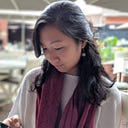Year of Discovery (Week 47: Lived Experience and Racism)
The sun broke through the grey skies this week and ushered in warmer air, hinting at springtime. Pushing pause on my podcast and welcoming silence on a walk, I spent some time imagining the reality of many Ukrainians whose worlds flipped upside down within the last few days. For many, their daily experience has dramatically shifted as they fight for the independence of their country. Last weekend, I learned at a friend’s farm how to shoot a gun — having never seen or held a gun in my life — and I thought of the Ukrainians who needed to learn how to carry guns to defend themselves. For some, this is a war of ideology. For others, it’s more about ego, influence, and power. Whatever the reason is, everyday people are suffering and I continue to hope that peace returns soon for these people.
Today, I’m writing a reflection on lived experience and racism.
Self (on Lived Experience)
Jean-Paul Sartre: “The more sand that has escaped from the hourglass of our life, the clearer we should see through it.”
George Orwell: “There are some ideas so absurd that only an intellectual could believe them.”
Immanuel Kant: “Experience without theory is blind, but theory without experience is more intellectual play.”
Aristotle: “For the things we have to learn before we can do them, we learn by doing them.”
The World (on Racism)
Foreign students fleeing Ukraine say they face segregation, racism at border. Rachel Onyegbule, a Nigerian first-year medical student in Lviv: “More than 10 buses came and we were watching everyone leave. We thought after they took all the Ukrainians they would take us, but they told us we had to walk, that there were no more buses and told us to walk.”
Ongoing armed conflict globally: why is violence normalized in certain parts of the world invisible in the media and our minds?
NYC DuiYing Ma’s death being reinvestigated as possible hate crime after rock attack. There was a 367% rise of anti-Asian hate crimes from 2020–2021, according to the NYPD.
Ideas to Action
The blend of lived experience and racism is particularly complex and cannot be covered within just one reflection. The last few months of rising anti-Asian hate crime in New York combined with stories of African immigrants facing racism at the Ukraine border to escape war has both numbed and broken my heart. Like the sound of a child screaming in a room of thick soundproof walls.
During my trips downtown on the Chicago ‘L’ train over the last few months, I have found myself standing as close to the middle of the platform as possible, positioning my back against a wall in fear of any attacker pushing me from behind. Chicago’s reported anti-Asian hate crime is lower than that of NYC’s, but the fear stays within me — wondering if I’ll be the unlucky recipient of a stranger’s anger and hostility. As I keep to myself on the train tracks, it reminds me of the experience of many minority immigrants who try to maintain peace and find themselves in positions of weakness as recipients of condescension.
Similarly, some people on various social media platforms this week pointed out that reports of racism in Ukraine were “distracting from the real issue” which was a clear belief that their empathy only extended to one group over another. While comparative suffering is dangerous because it comes from the belief that empathy is finite, we can still acknowledge the pain when we witness the grace and compassion given to one group over another. And we can do our best to act by example — showing empathy to everyone involved and acknowledging the pain and fear underlying their statements.
In moments of lived experience that clarify my understanding of universal humanness, I’m continuing to practice empathy. Because what else is better to gift ourselves and others?
What I’m Listening to This Week: Remembering Thich Nhat Hanh, Brother Thay
